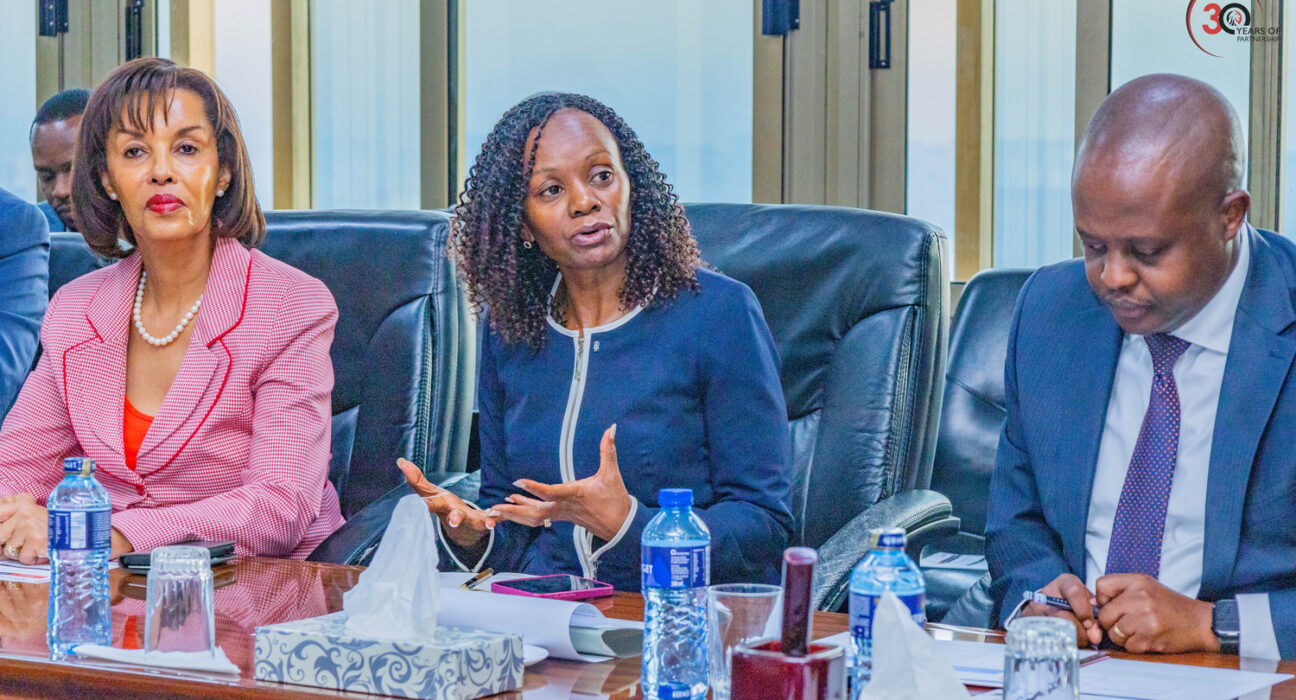The Kenya Revenue Authority (KRA) recently convened a high-level roundtable with private sector stakeholders to address tax-related challenges and explore solutions aimed at enhancing business competitiveness and investment growth in Kenya. This engagement underscores KRA’s commitment to fostering a conducive business environment through constructive dialogue on tax administration, compliance, and policies affecting businesses.
In his remarks, KRA Commissioner General Mr. Humphrey Wattanga emphasized the authority’s dedication to improving efficiency and service delivery within tax administration. He stated, “Our endeavor is to improve efficiency and service delivery within the administration, and thereby provide an enabled tax environment that promotes the ease of doing business and investment in our country.” This commitment reflects KRA’s recognition of the critical role that a streamlined tax system plays in economic growth and development.
The Chief Executive Officer of the Kenya Private Sector Alliance (KEPSA), Ms. Carole Kariuki, commended KRA for engaging in open dialogue and providing clarity on various tax concerns. She called for continued collaboration with other strategic stakeholders to further refine taxation policies, streamline compliance mechanisms, and foster an investment-friendly climate in Kenya. This collaborative approach aims to align tax policies with the needs of businesses, thereby enhancing competitiveness and encouraging investment.
Acknowledging a funding shortfall that had delayed the processing of refunds, KRA encouraged taxpayers to use approved refunds to offset tax liabilities in line with the law, even as it engages the National Treasury for additional resources. The authority has appointed a dedicated team to clean up taxpayer ledgers and fast-track the resolution of outstanding issues resulting from the pre-iTax period. Taxpayers are urged to review their ledger balances on iTax and provide feedback for quick facilitation and adjustments. This initiative aims to resolve discrepancies and enhance the accuracy of tax records, thereby building trust between KRA and taxpayers.
KRA has introduced a tax amnesty program that waives all penalties and interest for all periods up to 31st December 2023. The amnesty window, which closes on 30th June 2025, provides taxpayers with an opportunity to regularize their tax affairs without the burden of additional charges. Key highlights of the program include:
- Automatic Waiver: Taxpayers who have paid their principal taxes due before 31st December 2023 automatically qualify for a waiver of related penalties and interest and need not make an application.
- Application Requirement: Taxpayers with outstanding principal taxes up to 31st December 2023 must apply via the iTax system and submit a structured payment plan for full settlement of the outstanding principal taxes by 30th June 2025.
This initiative aims to encourage voluntary compliance and provide relief to taxpayers affected by penalties and interest, thereby promoting a more favorable tax environment.
KRA reaffirmed its commitment to stakeholder engagement as a core element of its revenue administration strategy. Further targeted consultations are scheduled to ensure the smooth implementation of tax reforms and administrative improvements. This ongoing dialogue with the private sector and other stakeholders is crucial for identifying challenges, developing solutions, and fostering a tax system that supports economic growth.
The high-level roundtable between KRA and the private sector marks a significant step toward enhancing tax compliance and investment growth in Kenya. Through collaborative efforts, addressing inefficiencies in tax administration, and implementing supportive policies, Kenya can create a more conducive environment for businesses to thrive. Taxpayers are encouraged to take advantage of the extended tax amnesty program to regularize their tax affairs and contribute to the nation’s economic development.





